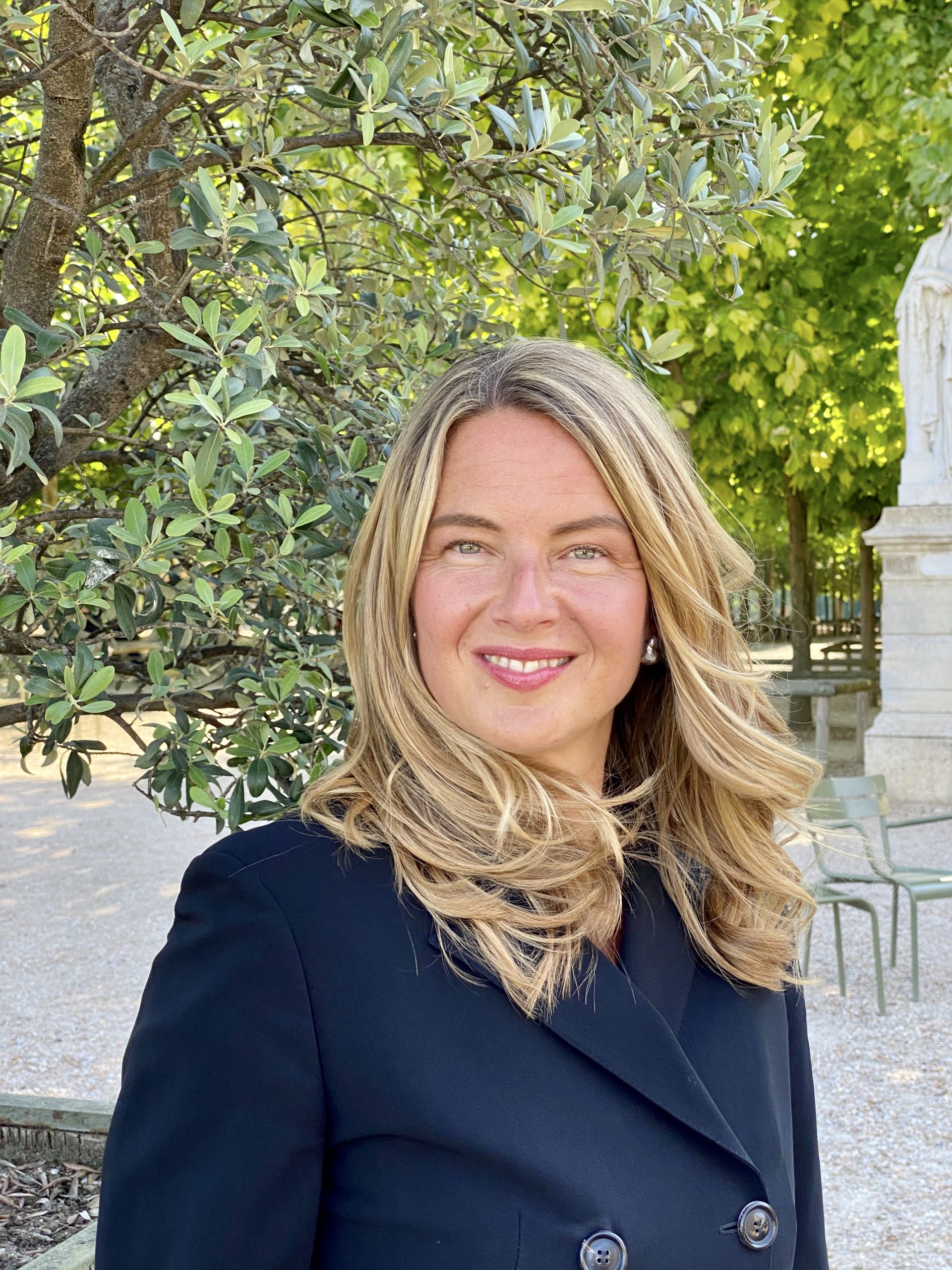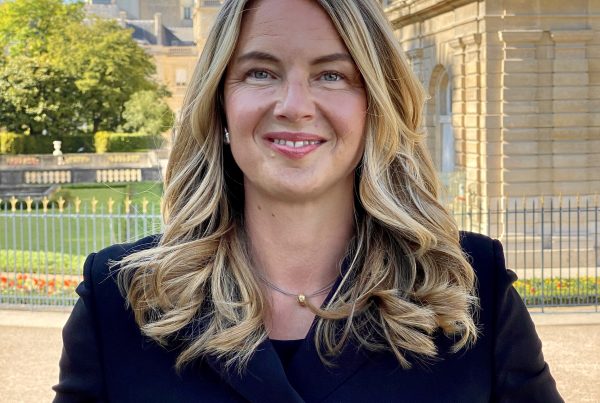La Rentrée in France, Labor Day weekend in the US… it is officially time to get back to school and back to work – for many people after 18 months working from home, improvising, and adapting to new ways of work and play.
What used to be an exciting time of renewal seems to be a bit subdued this year considering an unpredictable virus that has impacted our lives and livelihoods and will continue to do so – we just do not know yet to what extent and how. As a good friend of mine said this summer: “I can’t believe we meet again soon, same place, one year older, but unfortunately the state of the world has not changed.” Well, not quite so. With respect to the pandemic, we’re in a much better situation than last summer – at least in the Westernized countries that have abundant access to vaccines at this point. Nevertheless, we’re less excited than last year, just because we had expected that this pandemic would be over by now. So matching expectations (mostly created through false and short-term communication of public media and policy) with reality was and is the real challenge of our own perspective these days.
This year’s Rentrée falls together with the 20th anniversary of the World Trade Center attacks and as everybody remembers where he or she was when “it” happened; we will also remember our own personal moments of the Covid-19 pandemic.
As much as I remember the crystal-clear blue-sky day of 9/11 when I had just moved to the US a few weeks before, I recall the day after when the “AOL-you’ve got mail voice” did not stop talking because family & friends wanted to know how I was doing. An email from my dad caught my attention first. It had the subject line “There are days in life when nothing is like it was before”.
What we realized in shock and because of happenings of less than two and a half hours on 9/11 we slowly have begun to grasp over the last 18 months: the world has (again) changed forever.
Each time “war” was declared – against terrorism or respectively a virus by political leaders. Looking back at the preface of my dissertation which I wrote at the time when 9/11 happened I stated that “for my generation it was the first time in our lives that we got a feeling about what “war” means. Air traffic was shut down, phone lines broke down, …and people started panic buying” (not toilet paper and pasta as it was the case at the beginning of the pandemic but in general). Without real “war experience” we associated the lack of easy access to daily needs with a situation of extreme danger. No one listened to scientists or “intelligence” in the first place, but when being faced with an empty void on the shelf where there used to be the ‘difficult’ choice of two- or three-ply paper to make we believed this is what war feels like?! In many parts of this planet there is no paper at all, and consequently no choice.
Taking the perspective of the Westernized world I am contemplating whether we have learned anything in dealing with major impact and/ or crisis and our assessment of the situation? An error committed twice is a decision. It took 20 years, many lives lost, and trillions of dollars to replace the Taliban with the Taliban. It took 18 months, many lives lost, and billions of dollars to fight the human and economic consequences of a virus. Besides the marvelous and relatively quick development of the vaccines as a preventive measure most of the resources were spent on paying for the failure of prevention and communication: the lack of protective equipment in the beginning and, most importantly, taming in human behavior – mostly through prescribed rules and legal guidelines without consistent explanation and providing a reason-why. I believe that many lockdowns would not have been necessary if people had understood (or been better educated about) the dynamics of the virus and consequently behaved more responsibly. But we are still living in a context of comfortable living conditions in which there is not much need felt to change behavior.
And so it happened that last summer’s excess behavior (without having a vaccine) kicked world economies into a grim fall and winter. There is a saying in German: “let the pig out” during vacation time – this phenomenon you can observe at the famous Ballerman beach on the German’s favorite Spanish vacation Island Mallorca. Needless to explain what it means. Considering the greater welfare of our fellow citizens and the global economy we must ask: Isn’t it possible to enjoy and relax during vacation time without “letting the pig out” (and run wild)? Although last summer’s behavior had severe consequences on many industries, we nevertheless discussed during winter in talk shows among well-known politicians and scientists whether we can have “just another summer in 2021 like the one in 2020?”
Those who have lost loved ones on 9/11 or because of the pandemic might think differently and will #neverforget. But has the larger part of the world population learned anything? Probably not in terms of crisis response and civic (and human!) responsibility. And even worse: they had not much of an incentive to learn due to the comfortable context conditions as described above.
But there is not only comfort that drives human decision-making and behavior. It is also the freedom of the individual that is deeply ingrained in Western societies which in general is a good thing. However, with freedom comes responsibility. While preventive measures and education might have failed in the beginning of the pandemic, we have vaccines now that prevent – at least so far considering the current variants – severe cases of Covid-19. Whereas access to vaccines was limited until spring due to other management and political failures I do not want to get into here, they are now widely accessible in Western countries.
Therefore, we must assume that not getting vaccinated is a willing decision at this point (exceptions do of course apply to all people who cannot receive a vaccine due to medical reasons). Most arguments against vaccines stating not to know “what is in them” come from people who happily consume fast food and other artificial nutrition and never asked what ingredients were in those. Of course, we cannot force people to get vaccinated against Covid-19 and we shouldn’t. But again, failures of prevention, education, and communication seem to have led to a movement of antivax proponents that jeopardizes the success of vaccination campaigns of entire countries at this point. If you understand the dynamic of a pandemic, a virus can “celebrate a party” with just 20-30% of the population not being vaccinated. And that’s exactly what we currently see: a pandemic of the non-vaccinated, filling hospital beds at an ever-younger age and causing (at least a fraction of them) a population of chronically ill long-term Covid patients that will bear heavily on healthcare systems and societies in the future.
This raises ethical questions: should healthcare systems and insurance companies pay for resulting costs when people willingly refuse to get vaccinated? And even more importantly from a societal, human and equality perspective: should treatment be refused if this means that otherwise surgeries for life-threatening diseases for other patients are postponed? We just completed a project in Germany for which I interviewed surgical nurses that talked about the disastrous effects of delayed brain cancer surgeries due to Covid patients filling ICUs over the last 18 months.
So, the widely acclaimed value of freedom comes with a certain responsibility – be it personal or societal as we’re not living in a vacuum. Without being forced but based on sound reasoning one would think that it is self-evident as a citizen and human being to take the offer to get vaccinated?!
Reality draws a different picture. There seems to be a lack of responsibility and respect as principal values on an interpersonal level and in the societal context in which we live. The trend of a “me-me-me-culture” has certainly evolved already before the pandemic. However, here is a crucial difference between 9/11 as a tragic event in history and the ongoing crisis of the pandemic: whereas 9/11 triggered a wave of humanity and helpfulness among citizens Covid-19 caused human distance – physically and mentally.
Fueled by the rising individualistic tendencies in Westernized countries this “distance” and alienation evidently resulted in putting personal freedom over the collective good, thus harming humanity and relationships. Nowadays, a large majority of the population seems to be in the game for itself. Extending this to include developing countries beyond Westernized societies into the discussion we can observe shockingly low vaccination rates – this time not because of free choice – but because of no access while doses are thrown away in first world countries. It is shameful to realize that legislation overrides pragmatism in times like this and no one has the courage to intervene and just ship those doses overnight to where they are desperately needed.
At the same time values, beliefs and societal norms have lost power in guiding interpersonal and societal belongingness and behavior. This is the basis on which any management or political intervention to address a crisis used to build. Any human relationship – be it in business or personal life – is based on values and grows when trust, attention, and thoughtfulness are added. The loss of power and subsequently trust in global and political institutions due to nationalistic tendencies in many countries has resulted in a reactive and uncoordinated crisis response. And more profoundly, these nationalistic trends have impacted norms and common values of how we live together and share the planet’s resources that used to provide a framework for societies for centuries. So, in fact we have “let the pig out and it is running wild” in the midst of a pandemic that is supposed to be managed and “defeated”.
There is no quick fix or weapon – if we stay with the war metaphor – against the pandemic because the underlying changes in societal norms, beliefs and values require a much more subtle approach to achieve long-lasting change. Rules and laws are only crutches if understanding and commitment of human beings has not been achieved. And we face another issue in the “fixing process”: 9/11 was terrible when it happened, but it was also clear when recovery could begin. In this pandemic we are not sure yet whether we are on our way to recovery or further demise. To cope with this state of insecurity human beings and societies at large even more so need joint values, beliefs, and norms that are triggered and (re)built from within. The challenge is that life-at-a-distance has become the norm which is contrary to the human intrinsic need of belonging. Not an easy starting point, but as soon as we accept this challenge, we might be able to do something about it. The question is how?
As a healthcare expert I am frequently in the situation to explain the situation and clarify misunderstandings. As a strategist working for and inside of many organizations in the healthcare market, I have learned that before searching for answers and quick fixes one should always revisit the questions being asked. In the case of the pandemic, it is not about when it will be over or when we get back to “normal”, but how we can adapt, work with what we have, make it happen, and change our perspective – because: the world has changed forever, and denial of this fact will not get us anywhere.
I am fully aware that the public does not like people who bring bad news – one reason why politicians prefer not to tell the whole story. But after 18 months I believe we must realize that an honest and comprehensive communication would have served the purpose better than the reactive and frequently non-consistent response to a global pandemic. “If you can’t get over it you have to learn to live with it” is a saying I heard from my good friend Katrina Bennett for the first time right after 9/11. This “living-with” status must be supported by impartial and targeted communication in order to facilitate understanding and commitment.
My good friend and mentor Larry Brown asked me recently what it was like to be a healthcare manager in these times. After brief reflection I responded that it was all about communication. I spend large parts of my day with content-based communication and generating understanding – frequently between different cultures and countries. And the approach could be the same when dealing with the pandemic: analyze scientifically to understand the undistorted facts, exchange this knowledge impartially to get everybody on the same page, reconcile different viewpoints to develop routines and in the mid- to long-term value systems, norms and beliefs which (re)form the basis of any human interaction. This is management strategy and another call for a closer cooperation between policy and management. We are making small steps into that direction, but it is a huge undertaking.
There is another management mantra that I’d like to close this perspective with: “The most important of time management is to do it now.” Being reactive instead of proactive and “waiting just a little longer” before intervening means that we’re always running behind and won’t even come to a close-up with the virus. Remember that the virus can “throw quite a party” with only a small fraction of the non-vaccinated population. The more it circulates, the more likely it is that a variant emerges that is more contagious and more deadly (usually it is either one or the other but it can be both). So please do it now – #communicate evidence-based facts and #beresponsible. You are part of the solution to make it happen.
With all that said I remain optimistic as always and I look very much forward to seeing you all again hopefully soon in person – I still believe it is the essence for human and business interaction.
As always take care, be safe, and enjoy what you can.
Stay tuned @KatharinaJanus!

Prof. Dr. Katharina Janus
Founder and Managing Director of the Center for Healthcare Management, Paris, France and at Columbia University, New York, NY, USA
President and CEO, ENJOY STRATEGY, Europe & US
https://katharinajanus.com



